If you’re anything like us, your normal night routine might look a little like this: The sun is closer to rising than setting, and you’re still up working (and by “working” we mean crawling into your phone and downing Oreos). Meanwhile, vague thoughts of all the things you need to do tomorrow buzz around your brain and follow you into a thing that sort of resembles sleep.
We get it; we’re human too. Even if your evening routine kicks major ass over the one above, there’s probably room for improvement. Research shows that what we do before we go to bed makes a real difference. So why not use the time to set yourself up for the best possible tomorrow?
5 Dos and Don’ts to Nail Your Night Routine

Follow us as we break down the elements you need to create your ultimate night routine. And don’t worry—it’s simpler than you might think.
1. Do think on your day for a better night
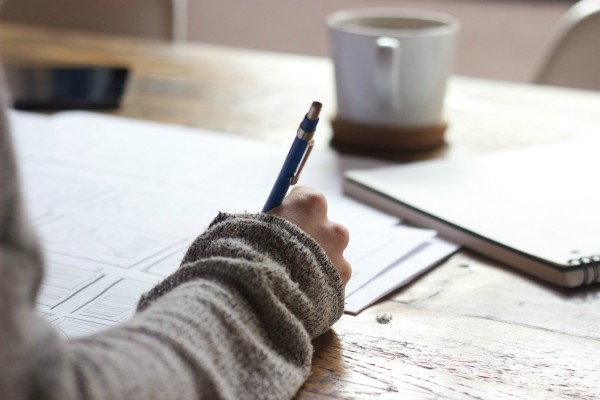
And we’re talking mostly positives here. What did you get done today? What brought on the smiles; what new things did you learn; what didn’t go so right; and what did you do about it?
Even if it sounds a little fluffy, stay with us. Reflection is a way to learn from our experiences, savor the best moments from our ordinary day, and remember that there are some, even when it feels like a total shitstorm. Deliberately reflecting on positive events also helps counteract the natural human tendency to focus on the negative. (It’s called negativity bias. And it sort of sucks.) So how do you take the positive back?
Focus on just three good things

Nope, not hours of meticulous journaling. Just a few moments of pondering on your day and what good you can take from it. You can totally do this.
One study from 2013 asked participants to think about and record three good things that happened at the end of the workday (similar to Seligman’s “three-good-things intervention”). The researchers found that “a brief, end-of-workday positive reflection led to decreased stress and improved health in the evening.”
Less stress in the evening = one effective night routine. Get on it.
Give a little thanks

Been reading for awhile? Yeah, you’re going to hear about gratitude over and over. Because it works. Gratitude is another super effective way to reflect on your day. What happened today that you can be thankful for? There’s definitely something. Promise.
Several studies have linked gratitude practices to better sleep and lower stress (as well as to increased happiness). In one study, students who logged a 15-minute gratitude journal each night slept better than they did before they started journaling. So giving praise to the lunch gods for today’s burrito might mean you’ll wake up feeling better in the morning.
2. Don’t leave it to fate
Part of a night routine that works is prepping for functional mornings. Wait, a good night routine is planning a morning routine? It’s a little circular, but it works. Think about it: There are those of us who wake up fresh as a daisy and ready to face the day. And then there are those of us who stagger out of bed like zombies in search of a coffee pot to dunk our heads into. Luckily (especially if you’re the latter) a bit of planning makes nights better and mornings easier. And it makes your mental focus better, too. Try this:
Put your plan on paper
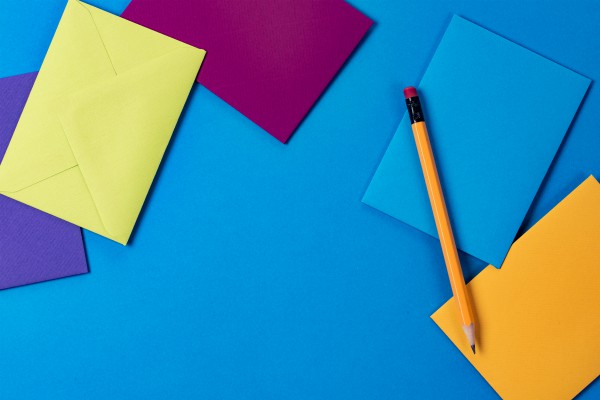
…or fine, your phone. Knowing what you have to do tomorrow will make your morning run more smoothly, and it might reduce your evening stress too.
Consider this: A 2016 study found that the more unfinished tasks an employee had during their work week, the more impaired their sleep was on the weekends. This frankly sucks because who wants their work getting in the way of their Sunday sleep-in?
This is where planning comes in. Creating a plan helps keep these unfinished tasks and unmet goals from weighing on the brain. Even though the tasks are still not done, the fact we have a solid plan gives us some closure. Plans, according to 2011 research, free up our cognitive resources so we can focus on other things.
Researchers emphasize that vague plans don’t cut it: Plans should be specific (a staple of habit-building), something you’re in control of, dependent only on you and not others, and related to goals that motivate you.
So writing out a plan of how you’re going to fit in the gym this week in order to smash your fitness goals means you won’t have your evening reading interrupted by thoughts of CrossFit classes.
See yourself carrying out your plan

Visualizing yourself performing a task produces similar brain activity as actually performing that task. This sets you up for more chances of success when tomorrow arrives. Don’t believe us? Just look at studies like this one, which compared brain scans of people who practiced a sequence on the piano versus those who only imagined practicing it. Those doing mental practice alone showed a similar development of fine motor skills as those who practiced physically.
Visualization also helps with planning. “You have to picture yourself carrying out your plan,” Assistant Professor E. J. Masicampo, one of the researchers on plans, told Wake Forest University. “That’s where the power of the plans lie, in imagining yourself completing the tasks.”
So to keep your night routine low on stress and high on effectiveness, make specific plans and see yourself getting them done. Got it.
3. Do set yourself up for sweet sleep
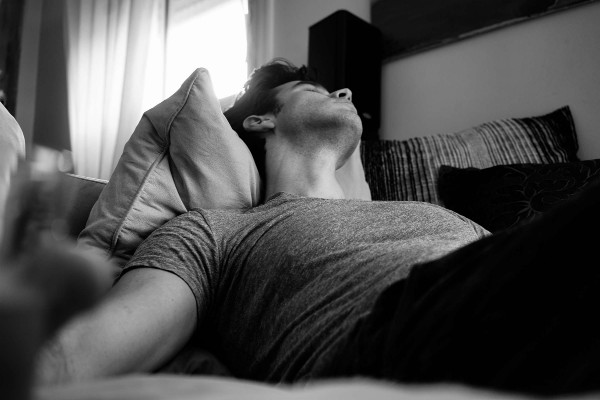
Most obvious statement of the day: Sleep is important. “Sleep plays a vital role in good health and well-being throughout your life. Getting enough quality sleep at the right times can help protect your mental health, physical health, quality of life, and safety,” says the National Institutes of Health. Not that we needed science to confirm. Just ask us how cranky we are without it.
Your kickass night routine can set you up for an evening of first-rate shuteye. Aside from drawing the blinds tight for bat-cave darkness, you might also want to:
Put the damn devices down

Scrolling through Instagram right before bed will not only fill your dreams with cats, elaborate cheese trays, and your ex’s new fling, it can also hinder your sleep. The blue light from devices suppresses melatonin and disrupts circadian rhythms, according to tons of research.
Yeah, it’s a total bummer that our fav nighttime activity busts up our bedtime bliss.
For optimal sleep tonight and better functioning tomorrow, power down screens around two hours before bedtime. Not realistic? Aim for at least half an hour.
Slow down your drinking

This means both coffee and booze. And cue the groans all around.
Most of us know that a double espresso right before bed is not the best idea. But at what point of the day should you call the last round of caffeine?
Short answer: At least six hours before you go to bed. Yup. Research shows that caffeine can disrupt sleep even after six hours of it entering your body. So you might want to think again before having that after-dark cup of joe.
And if a late night cocktail is more your thing, we also have some bad news. Alcohol isn’t so great either. While that glass of bourbon might initially help you doze off, studies have revealed that your overall sleep quality takes a hit. A big hit. Drinking disrupts REM sleep, in particular, meaning the sleep you do get is lighter and less restorative.
You might say that coffee and a bottle of red are things you’ll want to leave out of your night routine. Well… except on occasion (in the name of balance and perhaps stability).
4. Don’t forget to recharge
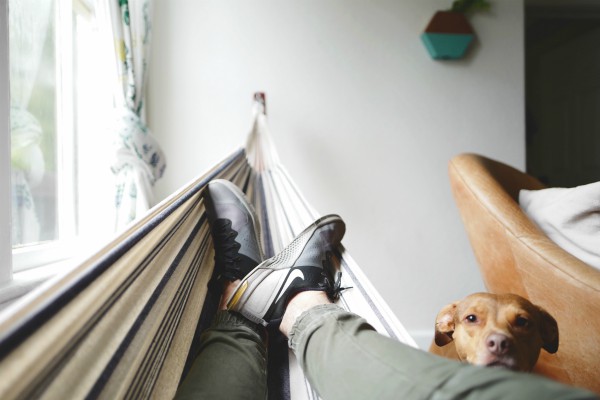
No, not your phone. Yourself. So you’ve reviewed your day, cleared some headspace with a few carefully-laid plans, and put your electronic devices to bed. Now what?
This is the part of your routine where you get to do something relaxing (and watching TV doesn’t count). Maybe it’s doing something creative, reading that new novel, or finally listening to the latest Fleet Foxes without interruptions. Or maybe you’re a total pro and you’re already owning the science-backed relaxation activities below. Look at you.
For the rest of us, give these a shot:
Breathing the right way
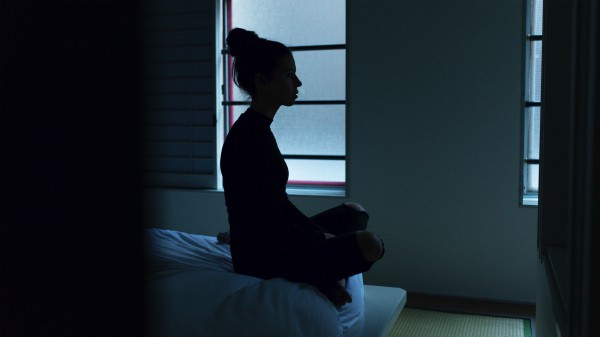
We’ll get full-on meditation with you later, but for now know that meditation can calm the mind and body, leaving you relaxed and recharged. As a bonus, it’s also been shown to help with sleep. So that’s a win for your night routine.
One study took a bunch of older adults with sleeping problems. Half of them completed a program in mindfulness meditation; the other half completed a sleep education class. Guess who won out? The meditation group—hands down.
They had less fatigue, insomnia, and depression compared to the sleep school group. The meditators focused on breathing and bringing their minds to the present. And they started their home practice with just five minutes per day, working their way up to 20 minutes. So even a short amount of time is beneficial.
Connecting with the people that matter
Before you draw a border down the middle of the mattress and remind your partner where their territory ends, invite them over to your side for a few minutes of spooning in the name of science. Yup, cuddling is good for your health, according to research.
One study investigating the effects of warm partner contact found that handholding and hugs contributed to lower blood pressure and heart rate in stressful situations. Now there’s some research we’re happy to replicate at home.
5. Do leave room for a little experimentation
Now that you know some elements of a stellar night routine, you might be thinking: K nice try, guys, but that’s an evening overhaul, not a little tweak. Yeah, we know. But here’s the thing: You don’t have to include all of these.
Experiment to find what works best for you. Do you feel good when you’re keeping up with gratitude? Are you less stressed after you jot down your goals and to-do lists in your planner? Do you sleep better if you shut off your phone and laptop an hour before bed? Everyone is different, so test it out.
Habitualize your routine where possible. Research says that habitual activities take less focus and effort and result in less stress. The more automatic your night routine is, the easier it will be to complete.
Review your routine regularly to make sure it’s still working for you. If your circumstances change or your activities simply aren’t working anymore, it’s time to experiment again.
And reframe the way you think about this: Your night routine is an awesome opportunity to slow down your stress and power-up your tomorrow. So make some tweaks, take some notes, and transform your days one night at a time.
Your turn: Do you have a pre-bed routine that keeps you chill at night and going during the day? Tell us about your experiences in the comments.
Author: Tania Braukamper
Tania Braukamper is an Australian-born writer and photographer. She believes in curiosity, kindness, and adventure as a state of mind.


Let Us Know What You Think